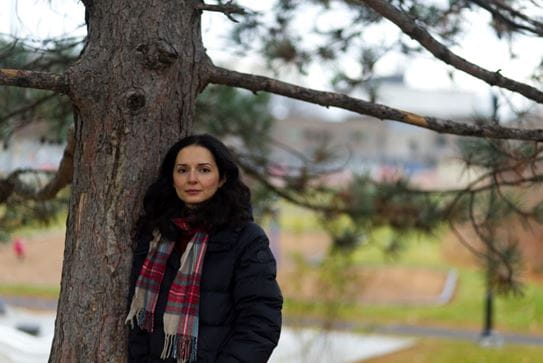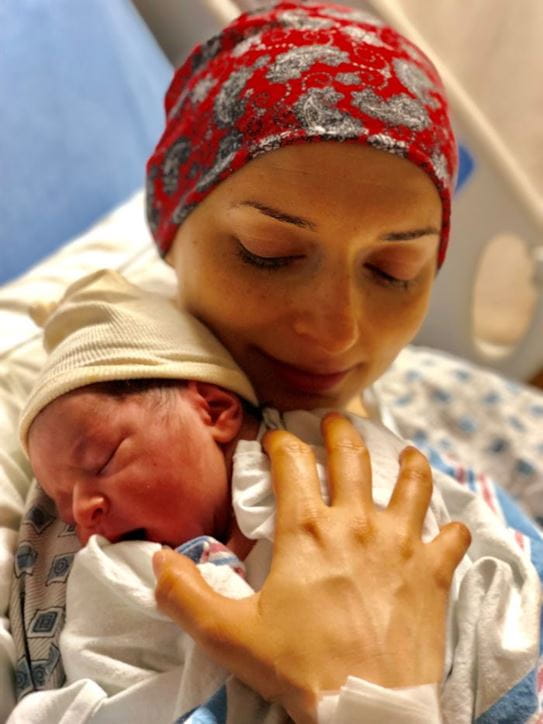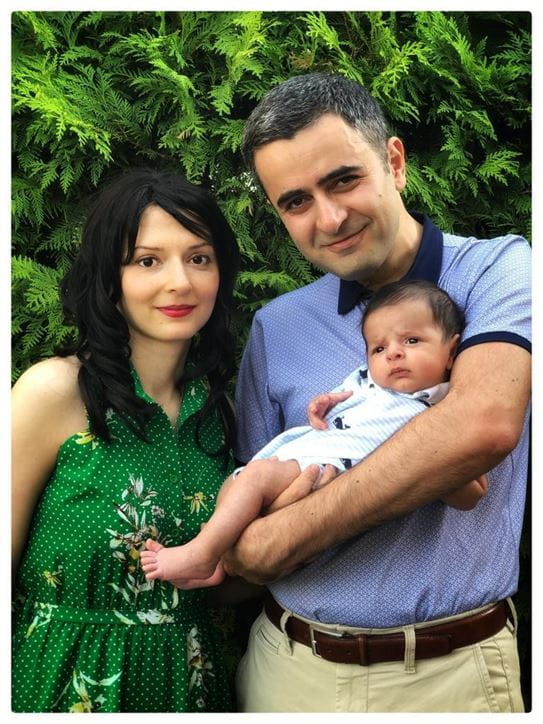One night in 2019, Salimeh noticed an abnormal lump in her breast. She was 7 months pregnant at the time and mentioned it to her doctor at her next appointment. An ultrasound confirmed the lump was serious, and a follow-up biopsy confirmed it was cancerous. Salimeh was diagnosed with HER2-positive, hormonal-negative breast cancer.
At 35 years old, Salimeh was shocked. There had been cancer in her family, but never at a young age.
Since there were no hormonal factors, her oncologist did not believe the cancer was related to her pregnancy - it was just bad luck.
“Obviously there was an element of shock. I didn’t feel any pain. There were no other symptoms besides the lump. It’s like the mind doesn’t believe that you are sick. But my immediate reaction was: ‘what do we do next?’”

Finding trusted cancer information
One of the hardest parts for Salimeh was the lack of proper resources about what it meant to have cancer while being pregnant. She felt frustrated because there wasn’t much information out there, both from healthcare providers and online, about the effect on the baby. She switched hospitals to a different medical team that were more experienced with rare cases of cancer.
What I suffered with at that time wasn’t just the shock of the cancer, but the lack of information related to cancer during pregnancy.
After a month of talking with her doctors and doing research on how to move forward with her treatment, Salimeh and her healthcare team decided the best plan was to start treatment while she was pregnant. Her plan included 2 rounds of chemotherapy before her baby was born and 2 more rounds after.
“I did lots of independent research on specific chemotherapy drugs and the safety for my child, but the information was difficult to find. It was hard to find any precise information on specific drugs used during pregnancy.”
Salimeh turned to the Canadian Cancer Society’s website to find trusted and reliable cancer information. Thanks to cancer.ca, Salimeh felt better informed about the side effects and effectiveness of different treatments.
“The information was great, cancer.ca had the different kinds of chemotherapy drugs, as well as more specific drugs such as ones that help raise blood count ... Finding that specific information about those drugs on the website was extremely useful.”

Getting support from the wig bank
After her son was born, Salimeh continued her treatment which included a segmental mastectomy and 19 rounds of radiotherapy. She knew she would start losing her hair but didn’t feel comfortable wearing scarves or showing her head. She visited wig shops around Montreal but could not afford the price, with some wigs costing $600.
While at the hospital, Salimeh learned about the Canadian Cancer Society’s Wig Bank program and decided to make an appointment after her first treatment.
Thanks to the wig bank, Salimeh was able to quickly chose a wig and bring it home. Not having to worry about her appearance gave her a sense of confidence and certainty that she needed while going through her treatment.
“Having a wig helped me feel young. The side effects of cancer can make you feel old overnight. You suddenly lose all the possibilities that come with youth, all the parts of your body you had taken for granted: fresh glowing skin, curls, your nails.”
The wig offered a respite, there they were my curls, not completely the same, but still very similar. I could still pretend to be young.
As of 2025 Salimeh is now cancer-free and goes for regular mammograms. Salimeh advocates for the importance of funding research and wants to raise more awareness about having cancer during pregnancy.

October is Breast Cancer Awareness Month, an important time to raise awareness, promote prevention and screening, and help fund cancer research and support people affected by the disease.
Breast cancer is the most commonly diagnosed cancer and the second-leading cause of cancer death among women. In 2024, 30,500 Canadians were diagnosed and 5,500 lost their lives to breast cancer.
As Canada's largest national cancer charity and the largest national charitable funder of breast cancer research, the Canadian Cancer Society works tirelessly to help save and improve lives. We fund the most promising research for breast cancer and across the entire cancer experience (prevention, screening and early detection, diagnosis, treatment and living with or beyond breast cancer), so we can give hope to all people facing in Canada.
Breast cancer affects all of us. Help make a difference to people like Salimeh by donating today.

Help change the future of people affected by cancer.
Help create a future without cancer
With support from readers like you, we can continue to make a meaningful impact for people affected by cancer.
We are determined to increase survival, stop cancer before it starts, and improve lives. But we can’t do it without you.
If everyone reading this gave just $5, we could achieve our goal this month to fund the most promising research, compassionate support and transformative advocacy. Please give today because every contribution counts. Thank you.
